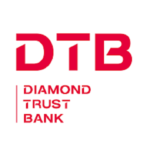Overview
Position Title: Junior Health Information Systems (Junior HIS)
Job location: Dar es Salaam.
Deadline for applications: June 8, 2024.
Commencement date: 15 July 2024.
The University of California, San Francisco (UCSF)
Context:
Under a five-year Cooperative Agreement, the University of California, San Francisco (UCSF) and the U.S. Centers for Disease Control and Prevention-Tanzania (CDC-Tanzania) are working together to provide technical assistance in health information systems (HIS) and strategic information to the Ministry of Health (MoH), the United States President’s Emergency Plan for AIDS Relief (PEPFAR), and their implementing partners (IPs). We are hiring someone to work as a Health Information Systems Developer through our connected worldwide NGO, “Global Programs.”
This is a full-time position with a September 2024 start date and a potential one-year extension contingent on funding availability. The anticipated start date of the role is July 15, 2024.
Principal obligations and tasks:
- The HIS Junior Developer will work under the direction of the HIS Developer Lead to design, develop, implement, test, maintain, audit, and enhance project software and new and current health information systems.
- Additionally, the developer will provide experience to the creation of Lab, EMR (electronic medical records), and other health information systems with a particular focus on HIV and other health initiatives.
- The developer is responsible for ensuring that every software developed complies with established software development standards through thorough testing, diagnostics, debugging of code, and technical documentation via reference manuals.
- The developer will also collaborate with others in a team setting, participating in group initiatives and helping colleagues accomplish shared objectives.
Particular obligations consist of:
- Participate in all SCRUM rituals, such as sprint planning meetings and daily stand-ups, to guarantee adherence to Agile software development principles.
- Control the software development life cycle.
- In order to construct software solutions, collaborate with the HIS team and follow the software development lifecycle while researching information demands, systems flow, data utilization, and work procedures.
- Examine, uphold, and develop current health information systems, such as Lab Visual, DAMES, Monthly Portal, and CTC Analytics.
- Help the HIS team create and implement interoperability between CTC2, CTC3, CTC Analytics, Monthly Portal, Lab Visual, PTCQI, and other current health information systems.
- Create APIs, or application programming interfaces, for a range of uses.
- Various data systems should be optimized to increase efficiency.
- Support Implementing Partners with the HIS system’s testing, deployment, training, and upkeep.
- Examine, evaluate, and offer suggestions to management for technological advancements, upgrades, and alterations.
- Determine whether the design is feasible given the time and financial restrictions by analyzing user needs and software requirements.
- Create and oversee the documentation, programming, and testing processes for software systems.
- Write operating instructions, flowcharts, layouts, diagrams, charts, code comments, and readable code to create reference materials for users.
- Carry out additional duties as assigned by management that fall within the purview of the position.
Experience, aptitude, and minimal prerequisites:
- It is necessary to have a bachelor’s degree in computer science, data science, software engineering, or information systems, or an equivalent degree. It is necessary to have prior experience with health information systems.
- Two years or more of experience as a software engineer or developer; evidence of producing a range of software systems while assuming progressively more responsibility for activities related to analysis, design, implementation, and development [reference required]
- Proficiency with Node.js and Python. An extra benefit is having familiarity with popular programming languages like Java, C#, PHP, and others.
- Advanced familiarity with the deployment of Docker containers. Utilizing additional DevOps tools is a benefit.
- Familiarity with creating cross-platform desktop applications with Electron.
- Experience creating relational database engines that are important to the overall application design in data-driven applications (experience with MS SQL Server, PostgreSQL, and MySQL are highly required).
- Practical experience with Agile approach, Restful web services, and Git.
- Expertise in creating and debugging sophisticated software systems that operate in a variety of settings, such as Windows on desktop, servers, tablets, and mobile devices.
- An extra benefit is having experience creating dashboards with PowerBI, Superset, and other visualization tools.
- Proficient in both spoken and written Swahili and English.
Additional abilities/skills needed:
- Analytical and critical thinking.
- Outstanding communication skills, both written and oral.
- The capacity to manage several projects under strict deadlines and operate autonomously.
- Demonstrated ability to work well in a team, utilizing excellent communication skills to support project planning and problem-solving.
How to Apply:
Every applicant must respond to each selection criterion listed in the above minimal standards with particulars and thorough justifications for each item.
The following must be included in all applications:
- A recent resume that includes the names and phone numbers of at least two references, one of whom is the applicant’s employer.
- Copies of one’s professional and academic credentials.
Applications and accompanying documentation must be sent by email to info.tanzania@ucglobalprograms.org by June 8, 2024.
NOTE: Contact will only be extended to short-listed applicants.
To apply for this job email your details to info.tanzania@ucglobalprograms.org.


